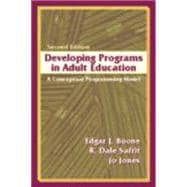| Foreword to the Second Edition | ix | ||||
| Foreword to the First Edition | xiii | ||||
| Preface | xv | ||||
|
1 | (14) | |||
|
3 | (2) | |||
|
5 | (1) | |||
|
6 | (2) | |||
|
8 | (5) | |||
|
9 | (1) | |||
|
10 | (1) | |||
|
10 | (1) | |||
|
11 | (1) | |||
|
12 | (1) | |||
|
13 | (2) | |||
|
15 | (36) | |||
|
15 | (21) | |||
|
26 | (1) | |||
|
27 | (1) | |||
|
27 | (1) | |||
|
28 | (1) | |||
|
29 | (1) | |||
|
29 | (1) | |||
|
30 | (1) | |||
|
31 | (1) | |||
|
32 | (1) | |||
|
33 | (1) | |||
|
33 | (1) | |||
|
34 | (1) | |||
|
35 | (1) | |||
|
36 | (5) | |||
|
41 | (8) | |||
|
42 | (3) | |||
|
45 | (2) | |||
|
47 | (2) | |||
|
49 | (2) | |||
|
51 | (40) | |||
|
52 | (7) | |||
|
53 | (1) | |||
|
54 | (5) | |||
|
59 | (5) | |||
|
61 | (3) | |||
|
64 | (1) | |||
|
65 | (1) | |||
|
65 | (1) | |||
|
65 | (4) | |||
|
66 | (1) | |||
|
66 | (2) | |||
|
68 | (1) | |||
|
69 | (2) | |||
|
71 | (5) | |||
|
76 | (14) | |||
|
76 | (6) | |||
|
82 | (4) | |||
|
86 | (4) | |||
|
90 | (1) | |||
|
91 | (64) | |||
|
93 | (2) | |||
|
95 | (1) | |||
|
95 | (13) | |||
|
100 | (1) | |||
|
101 | (1) | |||
|
102 | (3) | |||
|
105 | (1) | |||
|
106 | (1) | |||
|
106 | (2) | |||
|
108 | (44) | |||
|
112 | (2) | |||
|
114 | (16) | |||
|
130 | (2) | |||
|
132 | (6) | |||
|
138 | (2) | |||
|
140 | (3) | |||
|
143 | (4) | |||
|
147 | (5) | |||
|
152 | (3) | |||
|
155 | (38) | |||
|
156 | (1) | |||
|
157 | (2) | |||
|
159 | (19) | |||
|
159 | (4) | |||
|
163 | (6) | |||
|
169 | (6) | |||
|
175 | (3) | |||
|
178 | (4) | |||
|
178 | (1) | |||
|
179 | (3) | |||
|
182 | (10) | |||
|
183 | (2) | |||
|
185 | (3) | |||
|
188 | (2) | |||
|
190 | (1) | |||
|
191 | (1) | |||
|
192 | (1) | |||
|
193 | (50) | |||
|
195 | (14) | |||
|
195 | (3) | |||
|
198 | (6) | |||
|
204 | (4) | |||
|
208 | (1) | |||
|
209 | (21) | |||
|
210 | (4) | |||
|
214 | (3) | |||
|
217 | (3) | |||
|
220 | (2) | |||
|
222 | (2) | |||
|
224 | (3) | |||
|
227 | (3) | |||
|
230 | (1) | |||
|
231 | (9) | |||
|
232 | (4) | |||
|
236 | (1) | |||
|
237 | (3) | |||
|
240 | (3) | |||
|
243 | (30) | |||
|
243 | (7) | |||
|
244 | (2) | |||
|
246 | (2) | |||
|
248 | (2) | |||
|
250 | (12) | |||
|
250 | (1) | |||
|
250 | (6) | |||
|
256 | (5) | |||
|
261 | (1) | |||
|
262 | (5) | |||
|
262 | (2) | |||
|
264 | (3) | |||
|
267 | (4) | |||
|
268 | (1) | |||
|
268 | (2) | |||
|
270 | (1) | |||
|
270 | (1) | |||
|
271 | (1) | |||
|
272 | (1) | |||
| Appendix | 273 | (4) | |||
|
273 | (1) | |||
|
273 | (1) | |||
|
274 | (3) | |||
|
274 | (1) | |||
|
275 | (1) | |||
|
275 | (2) | |||
| Glossary | 277 | (8) | |||
| References | 285 | (10) | |||
| Index | 295 | (10) | |||
| About the Authors | 305 |









